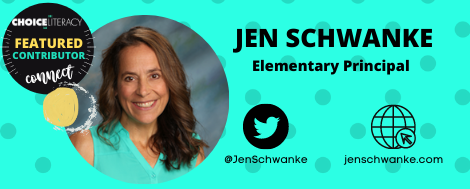Rest is not idleness, and to lie sometimes on the grass under trees on a summer’s day, listening to the murmur of the water, or watching the clouds float across the sky, is by no means a waste of time.
—John Lubbock
[Now you can listen to the Big Fresh as a podcast!]
Don’t Plan a Lot
“Just don’t plan a lot,” Sam, one of my high school–aged sons, said when asked to share his hopes for summer break.
“If you don’t make a plan for the things you hope to do, summer will slip through your fingers, and it will be wasted,” I said.
He turned his clear blue eyes to me and said, “If you plan too much, the goodness of summer is chewed up and creativity is destroyed.”
I’ve been thinking about his assertion for many weeks. Is it true that too many plans can ruin a good thing? Is it true that without plans you waste a good thing?
To both questions, the answer is absolutely.
Soon a group of contributors will gather for an in-person writing retreat. I’ve been working out the schedule, and Sam’s words keep pricking me. I’ve committed to offering long blocks of uninterrupted time for contributors to write . . . or read, plan, walk, or chat. Whatever they need to generate creativity and courage to write is how they will spend the time.
It is intended to be a gift. How often are we offered a long, uninterrupted block of time?
Many educators excel in planning. We can make a school day run without a hitch; we can make a unit plan segue from teaching points to assessment; we can connect students to buses and run a pickup line with ease.
Will we also allow ourselves some unplanned time?
Whether it is a weekday evening, a weekend afternoon, or a summer morning, you can give yourself the gift of unscheduled time.
This week we look at conventions—plus more, as always.
Shine on,
Ruth Ayres
Editor in Chief, Choice Literacy
Ruth Ayres is the editor in chief of the Choice Literacy site and the director of professional learning for The Lead Learners Consortium in northern Indiana. Ruth previously worked as a middle and high school language arts and science teacher and a K-12 instructional coach. She is the author of Enticing Hard-to-Reach Writers (Stenhouse, 2017) and other books for teachers of writers. When not writing professionally, Ruth collects stories of adoption, faith, and whimsy. You can follow her at Ruth Ayres Writes or @ruth_ayres on Twitter or Instagram.

This month’s Featured Contributor is Jen Schwanke. Jen has been an educator for more than 20 years, teaching or leading at all levels. She is the author of two books: You’re the Principal! Now What? Strategies and Solutions for New School Leaders, and The Principal Reboot: 8 Ways to Revitalize Your School Leadership. She is an instructor in educational administration at Miami University and a doctoral student at The Ohio State University. She is a principal for the Dublin City School District in Dublin, Ohio. Follow Jen on Twitter @Jenschwanke or her website jenschwanke.com. Find all of Jen‘s articles and videos on the site by clicking here.

On the podcast, Jen Schwanke talks about meaningful instruction about conventions.
Join the Choice Literacy Book Club! Stella Villalba selected the June pick. It is Hear My Voice, compiled by Warren Binford. Grab a copy, and join the conversation using the hashtag #ChoiceLiteracyBookClub.
Even eight-year-olds are expected to master a dozen or more conventions. Melanie Meehan shares a process for helping students focus on the small steps needed to master any convention with peer support. (This article was first published in 2019.)
Heather Rader works with a team of intermediate teachers to ferret out what does and doesn’t work in learning conventions, based on research and experience. (Although first published in 2012, the process for collaboration about teaching conventions is vital today.)
Jeff Anderson and Travis Leech are sharing what adolescent writers need to know about the conventions of language in their podcast Patterns of Power. Click here to listen to the first episode.

New members-only content is added each week to the Choice Literacy website. If you’re not yet a member, click here to explore membership options.
Gretchen Schroeder discusses grammar tools and the reasons students should use them as writers.
Melanie Quinn uses her fourth graders’ love of drama to create a fun activity for learning how to integrate quotations into writing.
Jen Schwanke outlines ways to make substantial cuts to a draft in order to have confidence in the clarity of a message.
In an encore video (2014), Ruth Ayres develops a word chart in this brief minilesson with second graders.
Deep Dive Course: English Language Learners and Literacy Instruction: Stella Villalba provides tools, strategies, and wise advice for literacy instruction for children with native languages other than English. (This course was created in 2019.)

Ruth Ayres outlines three expectations for school leaders to hold regarding grammar instruction.
Matt Renwick offers four suggestions on how to make literacy tasks from a scripted curriculum meaningful.
In a Coaching Minute, instructional coach Staci Revere shares a key mantra to use when working with teachers, especially those who do not want to work with an instructional coach.
Deep Dive: It’s a Cycle, Not a Hamster Wheel: Getting the Most Out of Coaching Cycles: Dana Murphy takes you into the nitty-gritty of coaching cycles with examples and advice from experienced literacy coaches from across the country. You’ll view videos of an initial meeting of a coach and teacher to plan a cycle and sample demonstration lessons within a cycle, as well as quick video tips for getting organized and taking good notes throughout the cycle. (This course was created in 2019.)
Quote It:
One benefit of Summer was that each day we had more light to read by.
—Jeannette Walls
That’s all for this week!



